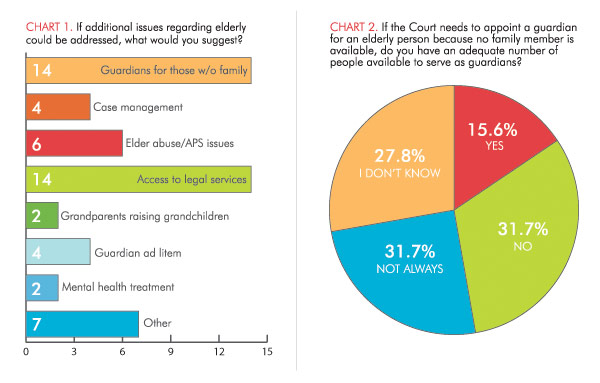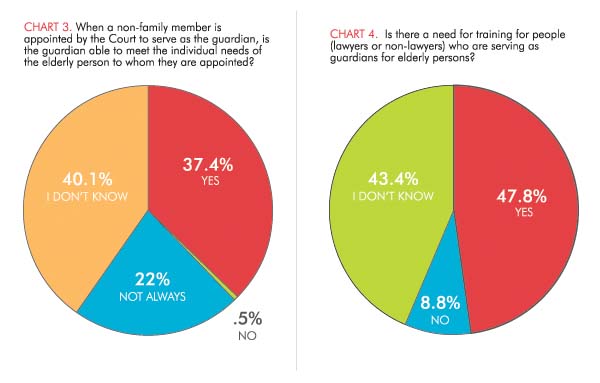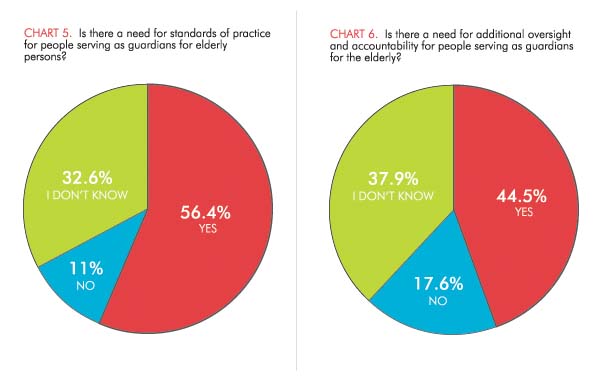According to the United States Census Bureau 2000 census, approximately 12% of this country’s population is age 65 or older. Between 1946 and 1964, 77 million babies were born in the United States. These children are known as the “Baby Boomer” generation, and by the year 2011, the oldest of the baby boomer generation will turn 65. Experts expect that in the very near future 20% of the population in this country will be over 65. The Baby Boomers represent a significant portion of the population, and the legal needs of this increasing population will impact our courts for years to come.
The Supreme Court Division of State Court Administration, through its Family Court Project, recently sought input regarding how well the court system meets the needs of the aging population in the State of Indiana. A brief survey consisting of 17 questions was sent to trial court judges, members of the Elder Law section of the Indiana State Bar Association, and Indiana Adult Protective Services (APS) Investigators. The results will be used to evaluate whether there is a need for additional programming or services related to Elder Law.
Of the 190 people completing the survey, 70% were judges, 20% were attorneys, and 7% were APS investigators. The remaining 2% were court staff. Around 50% of the respondents felt that within their community the majority of legal issues regarding elderly persons were being adequately addressed. Chart 1 summarizes respondents’ suggestions for additional areas that need to be addressed regarding the elderly.
The most common concerns were related to adult guardianships. Only 15% of respondents believed that there are an adequate number of people available to serve as guardians when there is no family member available (see Chart 2). While a limited number of counties have established programs to provide trained volunteers to help meet this need, many courts must rely on local social service agencies, Adult Protective Services, or local attorneys to fill the gap. The following are the issues raised: the ability of guardians to meet the individual needs of their wards, the need for guardian training, establishing standards of practice, oversight of guardians, and more accountability for guardians (see Charts 3-6). Other areas of concern include access to low or no cost legal services, especially with respect to housing and health issues, and elder abuse/Adult Protective Services.



For more information about the survey, contact Loretta Oleksy, Family Court Project Manager, at 317.233.0784 or [email protected].